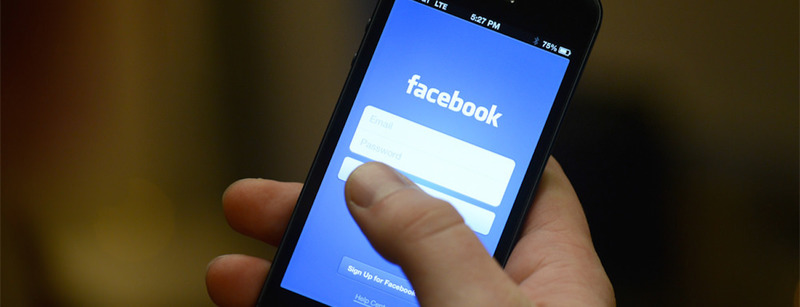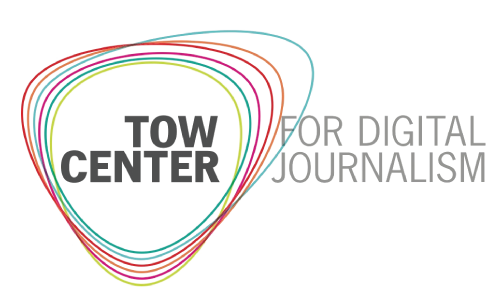Sign up for The Media Today, CJR’s daily newsletter.
As pivots go, Facebook’s transformation from just a platform company that has zero problem with fake news (Zuckerberg passim) to a media and information company thinking earnestly about how to shoulder its responsibilities toward civic discourse has been swift. Even as Facebook COO Sheryl Sandberg was ascending the gilded elevator to sit at a table of technologists and Trumps, Facebook executives were taking its first steps toward draining a different type of swamp.
Starting today, Facebook is responding to widespread criticism over the spread of “fake news” by integrating a layer of fact checking into its publication process, and throttling money from “spammy” sites that profit from spreading false stories. Its product team suggests this is “just the start” of tackling further issues that plague the Trending and News Feed features. In what seems like a series of relatively sensible and cautious steps, the fact checking responsibilities have been handed off to third-party organizations.
Articles flagged as dubious will be funneled to third-party fact-checking organizations, including Factcheck.org and Snopes.com, which will then either clear the article as fact checked or flag it as dubious. The flag is carried with the article, and if someone wishes to “share” a piece of fake news, Facebook will add a prompt asking if the user really wants to share a dubious story, a kind of caveat participem to stop the careless whispering of mendacious content.
The relationship with the veteran myth-busting and fake news–debunking sites involves no compensation, which is consistent with Facebook’s philosophy that the human aspects of curation and editing are better kept at arm’s length, and off the payroll.
There will no doubt be elements of the Democratic Party wistfully thinking that had Facebook performed this kind of due diligence a year ago, the election might have turned out differently, and Sheryl might not have had to spend her afternoon leaning in with Ivanka. Although the idea that fake news stole the election is a fake story itself—unprovable, uncheckable—the widespread presence of fake news on Facebook is undeniable.
Related: The real history of fake news
Is this a PR response to poor optics or a genuine change in product strategy? Both explanations are simultaneously true. For Facebook there is also a dawning, uncomfortable realization that the content it hosts on the platform is indistinguishable from its corporate brand and reputation. On Monday, Facebook made public its search for a senior news editor to become head of news partnerships, a further signal that the company feels, at a minimum, that it must be seen to be engaging more closely with its shifting role. For the rest of us, this is a turn of the cycle that has as many ramifications for traditional news companies as it does for the technology companies that now replace them.
One concrete outcome of the changes is that Facebook is assuming more of the publishing responsibility it has long tried to evade. This is because, as with pregnancy, being a publisher is a binary state: You either are, or you aren’t.
While Facebook is busy absorbing and learning from lessons of the past, the senior management might want to pay more attention to Twitter. Though Twitter is by Silicon Valley standards a basket case of declining value and complex problems, it is a leading indicator of how social publishing is going to develop now that it has essentially become mainstream media. Twitter has been more forthright about its mission of free speech, and has paid a greater price for trying to hold the line that the openness of the platform to all comes before creating a more regulated environment. Unlike Facebook, the trolling and human malware on Twitter was all too obvious, and the platform’s inability or unwillingness to address these issues has wrought long term corporate damage. Twitter founder Jack Dorsey and his executive team now have no option but to sweep their own platform clear of the detritus that has compromised their appeal and growth to advertisers and users. The problem is that values cost money, and the hard cases are really very hard indeed.
Dorsey was absent from the excruciating technology summit taking place in Trump Tower. His estrangement from one of his most popular users might seem odd, as Trump is a one-man global advert for the utility. The disinvitation allegedly stemmed from a rift between the Trump camp and the Twitter CEO after Dorsey personally banned a “Crooked Hillary” emoji the platform had sold to the campaign as part of a five million dollar ad spend in August. A fascinating Medium post by Gary Coby, Trump’s director of digital advertising for the presidential campaign, outlined in detail how Twitter negotiated advertising opportunities, including “custom hashtag emojis.” When the decision was made to allow the hashtag #crookedhillary to generate an emoji of flying money, Dorsey stepped in and turned down the deal flat.
Coby’s unverified version of events describes the anxious emollience of the platform executives, and their involvement in helping guide and deliver Trump’s message. However, once Dorsey made the clear decision to turn down the custom hashtag emoji, Coby writes: “We told them it was BS and what they were doing with a public platform was incredibly reckless and dangerous.” Coby says he “subsequently pulled all persuasion and lead gen[erating] spending, costing Twitter millions of dollars.”
Instead of spending his day at Trump Tower, Jack Dorsey took to his own platform for a Q and A with NSA leaker Edward Snowden. Whether Dorsey intended to make the point that his “public platform” is in fact a powerful publisher is not clear, but Twitter’s emerging identity as a news organization is.
Facebook flagging fake news and Twitter turning down Trump’s hashtag emoji differ in scale, but both count as editorial moves. The business of publishing and monetizing information is never neutral; it is always deeply political. It shapes opinion, informs markets, reinforces biases, creates understanding, and spreads confusion. Facebook has said more than once that it does not want to be an arbiter of the truth, but it also does not want to be the purveyor of lies. Journalists have known for a long time what technologists are just finding out: that what you don’t publish is as brand-defining as what you do.
Has America ever needed a media defender more than now? Help us by joining CJR today.





